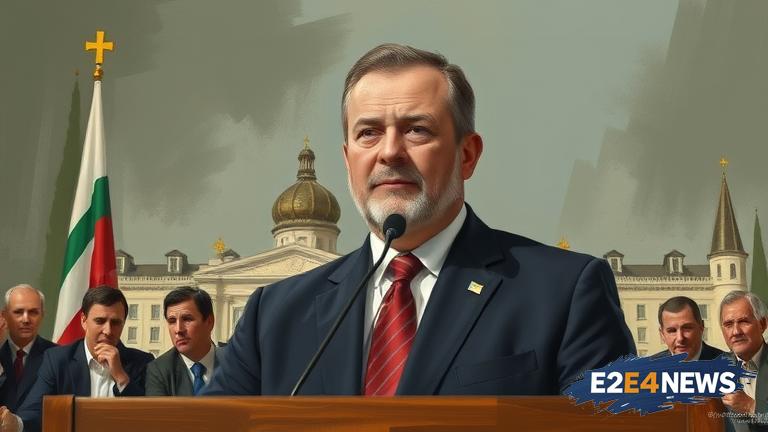The Lithuanian government, led by Prime Minister Ingrida Simonyte, has officially resigned, marking a significant shift in the country’s political landscape. This move comes after a period of intense political turmoil, which has been exacerbated by the ongoing economic crisis and rising tensions with neighboring countries. As a result, President Gitanas Nauseda has appointed Rimantas Sadzius, a seasoned politician and former finance minister, to lead a caretaker government until a new administration is formed. Sadzius, known for his experience in navigating complex economic issues, is expected to bring stability and continuity to the government during this transitional period. The resignation of the government has been met with a mix of reactions, with some welcoming the change and others expressing concerns about the potential impact on the country’s economy and international relations. The caretaker government, led by Sadzius, will be responsible for managing the day-to-day affairs of the country, including ensuring the continuation of essential public services and maintaining diplomatic relations with other nations. Meanwhile, political parties are gearing up for upcoming elections, which are expected to be highly contested. The elections will provide an opportunity for Lithuanian citizens to have their say on the direction of the country and to choose a new government that will shape the nation’s future. The resignation of the government has also sparked debates about the role of the president in Lithuanian politics, with some arguing that Nauseda’s decision to appoint a caretaker government is a necessary step to ensure stability, while others see it as an overreach of executive power. As the country navigates this period of uncertainty, the international community is watching closely, with many nations and organizations expressing support for Lithuania’s democratic institutions and processes. The European Union, in particular, has been keen to emphasize its commitment to supporting Lithuania’s economic and political development, and has pledged to continue working closely with the caretaker government to address common challenges. Despite the challenges ahead, many Lithuanians remain optimistic about the country’s future, citing its strong economic fundamentals, highly educated workforce, and strategic location as key assets. However, others are more cautious, pointing to the need for significant reforms to address issues such as corruption, inequality, and environmental degradation. The caretaker government, led by Sadzius, will face significant challenges in the coming weeks and months, including managing the country’s finances, negotiating with international partners, and preparing for the upcoming elections. To succeed, the government will need to work closely with a range of stakeholders, including political parties, civil society organizations, and the private sector. The international community will also play a crucial role, providing support and guidance as needed. As Lithuania navigates this critical juncture, the world will be watching to see how the country responds to the challenges and opportunities that lie ahead. The resignation of the government has also raised questions about the future of Lithuania’s relations with neighboring countries, including Russia and Belarus. The caretaker government will need to carefully manage these relationships, balancing the need to maintain good relations with the need to protect Lithuania’s sovereignty and interests. In conclusion, the resignation of the Lithuanian government and the appointment of a caretaker administration led by Rimantas Sadzius mark a significant turning point in the country’s history. As the country looks to the future, it is clear that there will be many challenges to overcome, but also many opportunities to seize. With the support of the international community and the determination of the Lithuanian people, there is every reason to believe that the country will emerge from this period of uncertainty stronger and more resilient than ever.





